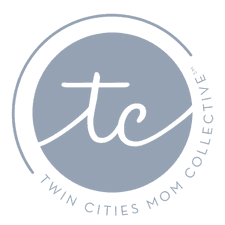Visit Lake Area Discovery Center to learn more about the high-quality education and childcare they offer for ages 6 weeks-5 years with four-year degreed, early-childhood licensed teachers and unique classroom environments that highlight hands-on STEM learning for school readiness.

It is important to think about how to help facilitate some social interactions between your child and other peers throughout the summer months. This will help to continue their social growth. Play dates are also crucial; as they are a way to generalize some of the skills you have been practicing at home towards other peers. Often, children become very good at communicating, using social skills, or problem-solving with adults. However, this will not help them in the long run. In order for them to be successful, they need to learn to generalize those skills to interactions with peers as well.
Finding Children for Play Dates
How does one find kids for a play date? There are a couple of different ways to find appropriate peers for your child to play with. First, you can start with your school. Are there any children that the teachers say your child gets along well with or spends a majority of their time playing with? Maybe there are some parents that you have gotten to know over the year that you wouldn’t mind asking to have their child come over. It is good to plan ahead before school is over so that you can gather phone numbers or emails from parents.
Additionally, you could look within your family. Are there are any cousins that would be appropriate, or maybe your family members know of some other children that could be a good fit. Next, you could look in your neighborhood for some children who are around your child’s age or at your church to find some peers for play dates. Ideally, you want to find a child who is within one year of your child’s age and is generally a pleasant, cooperative, and engaging child. Gender should not matter when selecting a peer. Instead, find someone your child shows interest in. If your child has social difficulties or behavior problems, try to find children who don’t also have those similar difficulties, as the play dates may be less successful.

Format of Play Dates
If your child isn’t quite ready yet to have a play date at someone’s house, you could schedule an outing between the two families. This would decrease the intensity of the interaction between the two peers. Also, when beginning to start play dates or even initiate play dates with a new child, it would be beneficial to invite the other parent to stay and chat in the other room so as to comfort the children during the new experience. Initially, you want to start with the play date between 45 minutes to 1 hour. This is long enough for your child to benefit from playing with the peer, but not too long that they will begin to get bored or cause conflict. You want to end the play date on a positive note, rather than letting it go too long!
Choose a place that provides unstructured play opportunities to encourage social interaction and creativity for the play date. If your child will become too rigid in play with their own toys or will have difficulty sharing, find a new setting for them to play in. Either way, make sure to put away toys that you know your child has difficulty sharing. As play dates become easier, you can begin to integrate some of those difficult to share toys. This will help to allow for your child to practice sharing and problem solving when they want a toy the other child is playing with.
You could break up the play date in a variety of ways. One suggestion would be to start with a structured game or activity right when the peer gets there. Follow up that structured activity by a snack or drink to encourage more social interaction through a slightly less structured activity. Finally, you can leave the children to engage in free-play for the last 15-20 minutes, with minimal adult interference.
Try not to think of play dates as entertainment so that you can get stuff done around the house. Younger children need supervision and support throughout their play from adults in order to have successful social interactions with peers for an extended period of time. Think of play dates as an opportunity to help your child practice social skills and prosocial behaviors like sharing, taking turns, flexible thinking, inviting others to play, using kind words, and problem-solving.

Skills to Target in Play Dates
The first phase for play dates is to facilitate basic friendship skills and provide more opportunities for them to engage with peers their age. The goals you can try to target during the first phase are increasing your child’s motivation or interest to play with peers, working together during play, following rules in simple games, taking turns, and simple communication (i.e. asking or answering questions).
During the first phase, you will want to help support your child during the play. Try to slowly fade out your presence as they are playing if things are going well. Additionally, the adult will want to help with any conflict or challenging issues during the play to help the children find a solution or model appropriate ways your child should respond. Some problem-solving strategies that you can offer include setting a timer, asking for one more minute, trading toys, or making a new choice.
Finally, you will want to provide lots of positive reinforcement for both children for using their friendship skills. These skills include taking turns, eye contact, sharing, or communication. During this phase, you can help to point out or suggest opportunities for your child to share their toys or take turns with something they are using, even if the other peer hadn’t asked for it yet. This is where you get to teach your child to notice when other children are interested in something. You can show them how to offer the other child a turn. And then discuss how the other child might feel to have your child offer a turn.
You will know your child is ready to move on to the second phase of play dates when they have demonstrated consistent motivation to play with peers, the ability to take turns during play, good eye contact, and the ability to follow rules for simple games. During the second phase, you want to focus more on conversational skills during the play. Have them work on reciprocal conversation, asking questions following something the peer said, maintaining on-topic conversations, and responding to questions asked by the peer. During this phase, you want to slowly remove your presence as much as possible and allow the children to interact as directly as possible. This will help your child develop independence and confidence!
 Dr. Jenna Edlund, LP is a licensed child psychologist working at Clinical and Developmental Services in Waconia, MN. Dr. Edlund has gained experience working with a wide variety of ages in both home, school, and office settings. She has extensive training in behavior analysis and cognitive behavioral therapy. Dr. Edlund also has experience providing parent trainings and teacher in-services on a variety of issues that occur during the early childhood years. Dr. Edlund specializes in a type of therapy called Parent Child Interaction Therapy that gives parents the tools to shape problems behaviors and strength self-esteem in children ages 2-7. Additionally, Dr. Edlund is a psychologist that consults in the classrooms at Lake Area Discovery Center. Through her consultation, Dr. Edlund provides parent trainings, staff in-services, and individual modeling for teachers on behavioral strategies in the classroom. Dr. Edlund received her Bachelor’s Degree in Psychology and Spanish from College of Saint Benedict. She received her Master’s Degree in Clinical Psychology from Minnesota State Univeristy, Mankato. Dr. Edlund completed her Doctorate in School Psychology from the University of Utah.
Dr. Jenna Edlund, LP is a licensed child psychologist working at Clinical and Developmental Services in Waconia, MN. Dr. Edlund has gained experience working with a wide variety of ages in both home, school, and office settings. She has extensive training in behavior analysis and cognitive behavioral therapy. Dr. Edlund also has experience providing parent trainings and teacher in-services on a variety of issues that occur during the early childhood years. Dr. Edlund specializes in a type of therapy called Parent Child Interaction Therapy that gives parents the tools to shape problems behaviors and strength self-esteem in children ages 2-7. Additionally, Dr. Edlund is a psychologist that consults in the classrooms at Lake Area Discovery Center. Through her consultation, Dr. Edlund provides parent trainings, staff in-services, and individual modeling for teachers on behavioral strategies in the classroom. Dr. Edlund received her Bachelor’s Degree in Psychology and Spanish from College of Saint Benedict. She received her Master’s Degree in Clinical Psychology from Minnesota State Univeristy, Mankato. Dr. Edlund completed her Doctorate in School Psychology from the University of Utah.




1 comment
My son is a little over a month away from the end of preschool and one of the things his teacher recommended was playdates throughout the summer to keep him socializing before Kindergarten. Great post 🙂 Thanks for sharing this! I didn’t realize there was such a community of mom bloggers in the Twin Cities. We are about an hour south of you 🙂